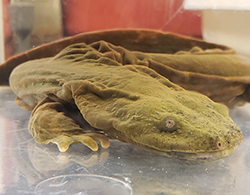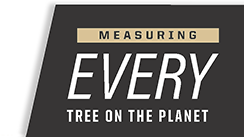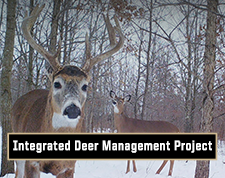Long-Term Research Partnerships

Center for Advanced Forestry Systems (CAFS)
CAFS brings together industry and agency scientists with practitioners and university scientists from across the country to take interdisciplinary approaches to solving problems facing our nation's planted and natural forests. Its mission is to help create a future with sustainable, healthy forests that provide an economic foundation for many communities and industries, and that offer numerous environmental services.

Hardwood Ecosystem Experiment (HEE)
Forest management in the eastern United States is faced with many modern challenges. Professional foresters have an innovative set of management options for the maintenance of healthy forest ecosystems. As populations of some forest organisms decline, restrictions on landowners may increase because species become classified as endangered or threatened (e.g., the Indiana bat), while increasing populations of other species (white-tailed deer, invasive plants) create economic and ecological challenges. To address these issues, the HEE, a long-term, large-scale experimental study of forest management and its impacts, was initiated in 2006.

Help the Hellbender
Eastern hellbenders are the largest salamander in North America. Hellbenders have been rapidly declining since the 1980s due to various factors, including poor water quality, loss of habitat, and diseases like chytrid fungus and ranavirus. Populations are so low that they cannot rebound on their own, and require our help. Conservation efforts include captive breeding and rearing in order to head start populations and increase survivorship.

Institute for Digital Forestry
The Institute for Digital Forestry (iDF) is leveraging digital technology and multidisciplinary expertise to measure, monitor and manage urban and rural forests to maximize social, economic and ecological benefits. The team is working to harmonize four key components of digital age technology – Internet of Things (IoT), Big Data, Artificial Intelligence (AI), and Edge and Cloud Computing.

Integrated Deer Management Project (IDMP)
IDMP is a multi-year research project led by the Department of Forestry and Natural Resources at Purdue University in partnership with the Indiana Department of Natural Resources – Division of Fish and Wildlife. The goal of the Integrated Deer Management Project is to combine deer population and habitat condition information with public perceptions of deer and deer management to better inform white-tailed deer management in Indiana.
The Cooperative Research Unit program was established in 1935 to enhance graduate education in fisheries and wildlife sciences and to facilitate research between natural resource agencies and universities on topics of mutual concern. The Indiana Unit has been approved to be the 43rd unit of its kind, as part of the USGS Cooperative Research Unit program founded in 1935. The Indiana Cooperative Fish and Wildlife Research Unit is a partnership with the U.S. Geological Survey, Department of Interior, U.S. Fish and Wildlife Service, Purdue University, Indiana Department of Natural Resources, and the Wildlife Management Institute.
View All FNR Partners
The Department of Forestry and Natural Resources is actively collaborating with government & non-government organizations on a number of outreach and continuing education opportunities.
PartnersLearn More About Our Research
FNR is organized and staffed to deliver programs addressing the land-grant mission of learning, discovery and engagement in natural resources. The department boasts 31 tenure-track, two clinical and two research faculty members. Faculty expertise covers the core disciplines to deliver undergraduate degrees in Aquatic Sciences, Forestry and Wildlife. In addition, FNR faculty have strong expertise in interdisciplinary ecology, natural resources social science and wood products.
View our nine research areas along with our world-class faculty.
The Department of Forestry and Natural Resources maintains an impressive collection of state-of-the-art research and education facilities. These labs, green houses, and educational facilities are a fundamental component that enables our faculty and students to learn, make new discoveries, and engage our clients in using these discoveries to sustain our nation’s ecosystems and natural resources.
The mission of the Department of Forestry and Natural Resources is to develop and disseminate knowledge in the natural resource sciences associated with the protection, management, and sustainable use of terrestrial and aquatic ecosystems. One way the department accomplishes our mission is by owning and managing 24 properties located throughout the state to provide opportunities for research, extension, and education that achieves sustainable use of our natural resources.

